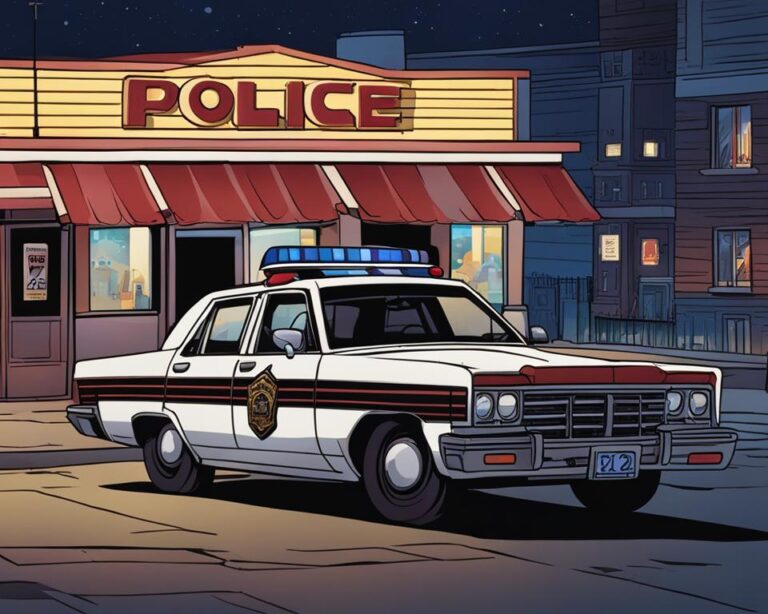From Constables to Cops: The Evolution of Police Terminology

Introduction
The term "cops" is a colloquial and widely used way to refer to police officers in modern society. While it may seem like a casual and harmless nickname, the evolution of police terminology holds significance in understanding the cultural and linguistic shifts within law enforcement. This article delves into the historical background, cultural impact, linguistic analysis, psychological perspective, and modern usage of the term "cops" to paint a comprehensive picture of how language influences perceptions of law enforcement.
Historical Background
The term "cops" has its origins in the early 19th century, derived from the verb "to cop," meaning to seize or catch. Initially used as a slang term to describe those who apprehended criminals, it gradually evolved into a common way to refer to police officers. This transition coincided with the shift from the term "constables" to the more modern designation of police officers, reflecting changes in law enforcement practices and structures. Factors such as urbanization, industrialization, and the professionalization of policing played a role in the adoption of new terminology to reflect the evolving nature of law enforcement.
Cultural Impact
The portrayal of police officers as "cops" in popular culture has had a significant impact on how society perceives law enforcement. From classic films and television shows to contemporary media, the term "cops" has become synonymous with the image of brave and heroic individuals fighting crime and upholding justice. However, this idealized representation has also been criticized for perpetuating stereotypes and glorifying aggressive or violent behavior among police officers. The influence of media and entertainment on the language of policing cannot be understated, as it shapes public attitudes and expectations regarding law enforcement.
Linguistic Analysis
Delving into the linguistic roots of the term "cops" reveals interesting insights into its connotations and associations. While some may argue that "cops" is a neutral or even endearing way to refer to police officers, others contend that it carries negative or derogatory undertones. Comparing "cops" to other terms used in different contexts, such as "officers" or "law enforcement professionals," highlights the diverse ways in which individuals perceive and interpret language within the realm of policing. The semantic implications of using the term "cops" go beyond mere semantics, influencing how police officers are perceived and how they perceive themselves in their professional roles.
Psychological Perspective
From a psychological standpoint, the label of "cops" can have profound effects on both the individuals being referred to and those using the term. The association of authority and power with the term "cops" can shape perceptions of police officers as authoritative figures with the capacity to enforce laws and maintain order. However, this perception can also lead to feelings of mistrust or fear among certain communities, highlighting the complex interplay between language, psychology, and social dynamics within law enforcement. Understanding the psychological implications of labeling police officers as "cops" is crucial for fostering positive interactions and relationships between law enforcement and the communities they serve.
Modern Usage
In contemporary society, the term "cops" continues to be widely used to refer to police officers in informal settings. However, there is an ongoing debate over the appropriateness of using this term in professional contexts. Some argue that "cops" is a casual and relatable way to humanize law enforcement personnel, while others believe it diminishes the professionalism and respectability of police officers. Efforts to promote more respectful language in policing are gaining traction, with organizations and individuals advocating for the use of neutral or formal terms to describe law enforcement professionals. The evolution of police terminology reflects broader societal trends towards inclusivity, diversity, and accountability in the language we use to communicate about important social institutions.
Conclusion
In conclusion, the evolution of police terminology from constables to "cops" underscores the dynamic nature of language and its impact on law enforcement culture. The use of language shapes perceptions, attitudes, and behaviors within the realm of policing, influencing how individuals interact with and perceive the police force. By reflecting on the significance of language in shaping law enforcement practices and community relations, we can strive to promote positive communication and foster trust between police officers and the communities they serve. Moving forward, it is essential to consider the implications of language in shaping the future of policing and work towards creating a more inclusive and respectful environment within law enforcement.
In understanding the evolution of police terminology, we gain valuable insights into the power of language to shape perceptions and influence behavior. By recognizing the impact of labels such as "cops" on the psychology, culture, and practices of law enforcement, we can take meaningful steps towards promoting positive language and communication within the police force. Language is a powerful tool that can either unite or divide us, and by choosing our words carefully, we can create a more just and equitable society for all.